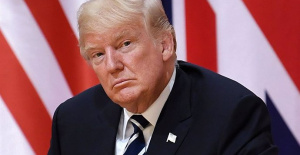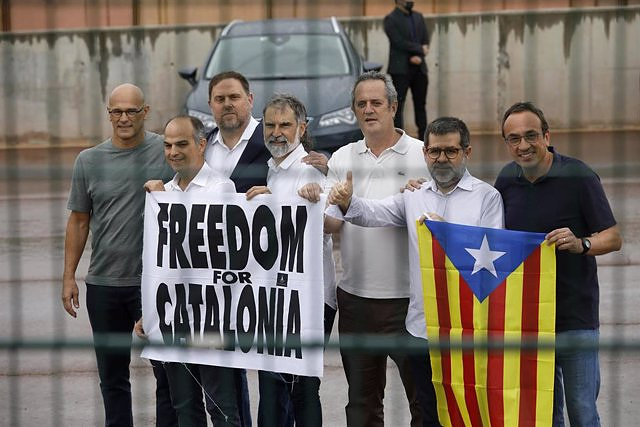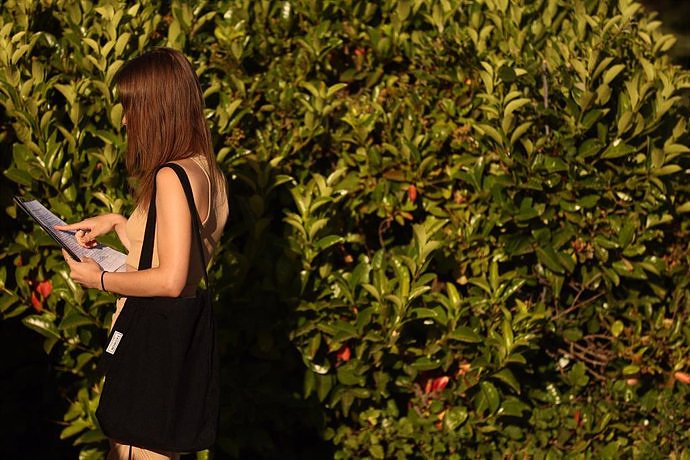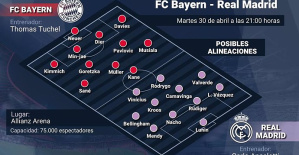Considers that the measure would allow Parliament to recover the "primacy" that corresponds to it in a democratic State
MADRID, 10 Oct. (EUROPA PRESS) -
Joaquín Urías, professor of Constitutional Law, former lawyer of the Constitutional Court (TC) and one of the jurists who will participate this afternoon in the presentation of Sumar's legal opinion on the amnesty, has vindicated in an article published in the last few hours the "reasons " to grant it in front of some "vigilante" judges who he considers refuse to "apply the law."
This is how Urías expresses himself in an article published on Monday on the website ctxt.es entitled 'Reasons for an amnesty', defending as a central idea that "the measure would allow the democratically elected Parliament to recover the primacy that corresponds to it in the democratic State, in front of judges who usurp their functions".
Urías begins by explaining that he is neither Catalan nor does he support the independence of Catalonia, but that "as an Andalusian" he believes that "united in diversity we would all be stronger", adding that he is "honestly convinced" that "the Catalan pro-independence leaders "has subjected them to illegal persecution that has broken all the limits of the rule of law and brings us closer to authoritarianism."
"It is something that I have been defending in public since 2017, so it is not an analysis that responds to sympathies with any political party that needs one vote or another in Parliament to access power. It is, in my view, simply the consequence of radically believing in the rule of law and democracy, beyond individual interests," he explains.
Thus, he says that he did not understand that in 2017 "the Government sent battalions of police to beat citizens who massively participated in an act of peaceful protest", nor that "the Constitutional Court expressly prohibited Catalan civil organizations from organizing a symbolic act for the that whoever wanted could put a piece of paper in a transparent plastic box.
Urías understands that "it was a challenge to the State and that it could have political consequences," but he rejects that "the courts are there to prohibit popular political challenges." "After that pitched battle and the sad images of children and elderly people beaten for carrying a ballot in their hand, I thought that someone from the Government or whoever gave the order would resign. Instead, a judicial persecution was initiated against their political leaders. who repeatedly broke the rules of law," he points out.
For this jurist, the judges of the Supreme Court - who, in his opinion, "took on the matter without having the authority to do so" - "used provisional detention as an exemplary sanction, beyond the three cases in which it is permitted by law." Constitution" and imprisoned "without any legal justification" a defendant in the middle of an investiture debate "so that he would not be elected president of the Generalitat."
Furthermore, Uría considers that the independence leaders were sentenced to "disproportionate sentences, often for invented crimes." This is because, in his opinion, the Supreme Court's interpretation of sedition "departs" from the Penal Code. "Then I had no doubt that the law was not being applied, but that the judges were acting as vigilantes, regardless of the letter of the law," he says.
Along these lines, it also disfigures the interpretation that the magistrates made of the embezzlement reform. "The Supreme Court stood up to the popular will expressed by the Cortes and decided that it was not going to apply the law," he says, while saying he is "very aware" of the "dangers" of delegitimizing the top of this judicial body.
In this sense, Uría insists that "with respect to the Catalan independence challenge we have a Judicial Power that has invaded the powers of the Legislature." Hence he says that he is in favor of amnesty: "It is the only way by which the democratically elected Parliament can recover the primacy that corresponds to it in the democratic State, in the face of judges who usurp its functions."
The jurist assures that if the law is limited to the crimes of disobedience, embezzlement of funds and sedition "it will not mean setting any criminal free." "Because it is difficult to know if they are criminals when the judges have invented the crimes for which they were convicted," he says.
In his opinion, "there will also be no problems of equality in comparison with other activists convicted in other places, against whom the power of the courts was not abused in this way."
Thus, Uría wants an amnesty law to be approved "that is made with the scope and justification necessary to avoid a declaration of unconstitutionality and that this serves to overcome the conflict that is being experienced in Catalonia."

 Exploring Cardano: Inner Workings and Advantages of this Cryptocurrency
Exploring Cardano: Inner Workings and Advantages of this Cryptocurrency Seville.- Economy.- Innova.- STSA inaugurates its new painting and sealing hangar in San Pablo, for 18 million
Seville.- Economy.- Innova.- STSA inaugurates its new painting and sealing hangar in San Pablo, for 18 million Innova.- More than 300 volunteers join the Andalucía Compromiso Digital network in one month to facilitate access to ICT
Innova.- More than 300 volunteers join the Andalucía Compromiso Digital network in one month to facilitate access to ICT Innova.-AMP.- Ayesa acquires 51% of Sadiel, which will create new technological engineering products and expand markets
Innova.-AMP.- Ayesa acquires 51% of Sadiel, which will create new technological engineering products and expand markets Real Madrid saves a draw in Munich and will appeal again to the Bernabéu
Real Madrid saves a draw in Munich and will appeal again to the Bernabéu The Congress of Argentina approves the omnibus law that allows the privatization of some public companies
The Congress of Argentina approves the omnibus law that allows the privatization of some public companies Marjane Satrapi, Princess of Asturias Award: "I am angry with Borrell, if I had him in front of me I would slap him"
Marjane Satrapi, Princess of Asturias Award: "I am angry with Borrell, if I had him in front of me I would slap him" Judge fines Trump $9,000 for contempt of court and considers sending him to prison during trial
Judge fines Trump $9,000 for contempt of court and considers sending him to prison during trial How Blockchain in being used to shape the future
How Blockchain in being used to shape the future Not just BTC and ETH: Here Are Some More Interesting Coins Worth Focusing on
Not just BTC and ETH: Here Are Some More Interesting Coins Worth Focusing on Valencia unanimously approves the ordinance to allocate spaces to test innovative initiatives
Valencia unanimously approves the ordinance to allocate spaces to test innovative initiatives UPV researchers promote a paid master's degree as a "talent factory" in integrated photonics
UPV researchers promote a paid master's degree as a "talent factory" in integrated photonics A spin-off of the UV works on obtaining high-resolution 3D biomedical images in real time
A spin-off of the UV works on obtaining high-resolution 3D biomedical images in real time They create a bank of machinery sounds to prevent breakdowns through artificial intelligence
They create a bank of machinery sounds to prevent breakdowns through artificial intelligence A million people demonstrate in France against Macron's pension reform
A million people demonstrate in France against Macron's pension reform Russia launches several missiles against "critical infrastructure" in the city of Zaporizhia
Russia launches several missiles against "critical infrastructure" in the city of Zaporizhia A "procession" remembers the dead of the Calabria shipwreck as bodies continue to wash up on the shore
A "procession" remembers the dead of the Calabria shipwreck as bodies continue to wash up on the shore Prison sentences handed down for three prominent Hong Kong pro-democracy activists
Prison sentences handed down for three prominent Hong Kong pro-democracy activists ETH continues to leave trading platforms, Ethereum balance on exchanges lowest in 3 years
ETH continues to leave trading platforms, Ethereum balance on exchanges lowest in 3 years Investors invest $450 million in Consensys, Ethereum incubator now valued at $7 billion
Investors invest $450 million in Consensys, Ethereum incubator now valued at $7 billion Alchemy Integrates Ethereum L2 Product Starknet to Enhance Web3 Scalability at a Price 100x Lower Than L1 Fees
Alchemy Integrates Ethereum L2 Product Starknet to Enhance Web3 Scalability at a Price 100x Lower Than L1 Fees Mining Report: Bitcoin's Electricity Consumption Declines by 25% in Q1 2022
Mining Report: Bitcoin's Electricity Consumption Declines by 25% in Q1 2022 Oil-to-Bitcoin Mining Firm Crusoe Energy Systems Raised $505 Million
Oil-to-Bitcoin Mining Firm Crusoe Energy Systems Raised $505 Million Microbt reveals the latest Bitcoin mining rigs -- Machines produce up to 126 TH/s with custom 5nm chip design
Microbt reveals the latest Bitcoin mining rigs -- Machines produce up to 126 TH/s with custom 5nm chip design Bitcoin's Mining Difficulty Hits a Lifetime High, With More Than 90% of BTC Supply Issued
Bitcoin's Mining Difficulty Hits a Lifetime High, With More Than 90% of BTC Supply Issued The Biggest Movers are Near, EOS, and RUNE during Friday's Selloff
The Biggest Movers are Near, EOS, and RUNE during Friday's Selloff Global Markets Spooked by a Hawkish Fed and Covid, Stocks and Crypto Gain After Musk Buys Twitter
Global Markets Spooked by a Hawkish Fed and Covid, Stocks and Crypto Gain After Musk Buys Twitter Bitso to offset carbon emissions from the Trading Platform's ERC20, ETH, and BTC Transactions
Bitso to offset carbon emissions from the Trading Platform's ERC20, ETH, and BTC Transactions Draftkings Announces 2022 College Hoops NFT Selection for March Madness
Draftkings Announces 2022 College Hoops NFT Selection for March Madness























